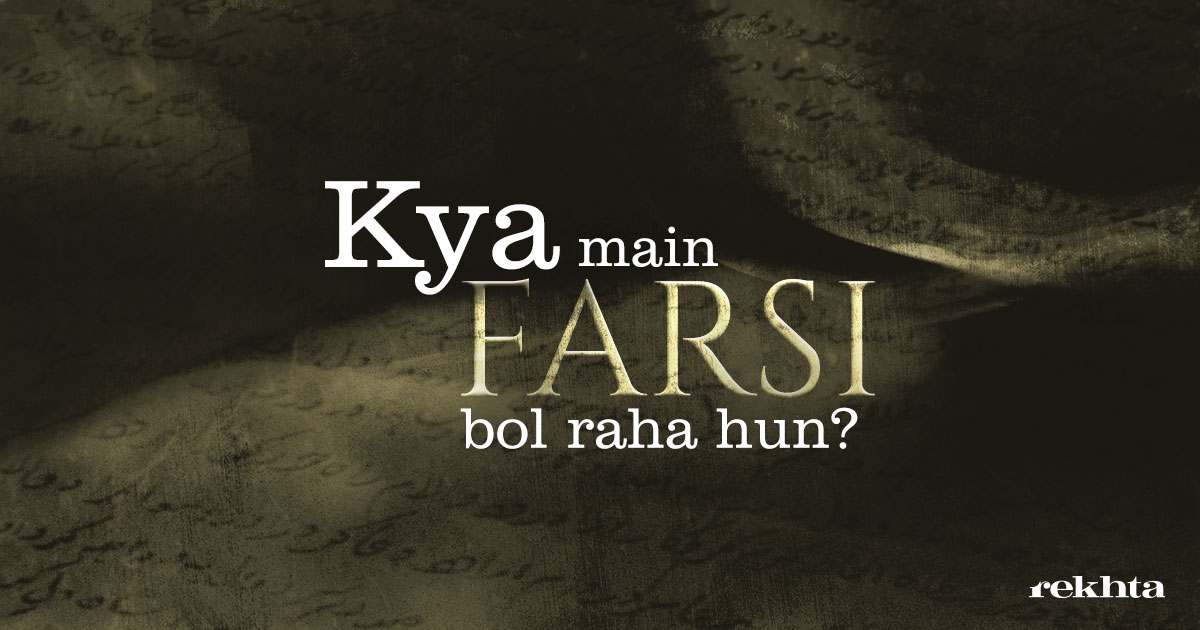
Kya main Farsi bol raha hun?
You must have heard the phrase, ‘Kya main Farsi bol raha hun?’ several times in serials, movies and perhaps by the very people around you as a sarcastic remark when someone cannot comprehend a simple matter. Such is the impact of the phrase that it has become a constant in our everyday speech.
But as we are discussing speech, proverbs and Farsi do you know that our workaday language is full of Persian proverbs that we instantly turn to every day? Don’t Believe? Perhaps you’ll be convinced at the end of the blog, for now, let us start with it. Oh! And do you know what we often say before starting with something nice? Neki-o-Pursish… didn’t get it? Neki aur Puuch-Puuch! Yes, a Persian proverb. Now you know where this is going!
All right, these days all of us are stuck in lockdown, extremely annoyed at the Corona Virus which has become a pain in our neck for some time now. Speaking of neck, you must have used our closer-to-home proverb to express your annoyance at this predicament- gale pad gaya hai ye to! Interestingly, this too is a rephrasing of a Persian proverb, dar gardan uftaad. Mirza Bedil, one of the most influential Sabk-e-Hindi poets has sneeringly made use of it in one of his Farsi Couplets.
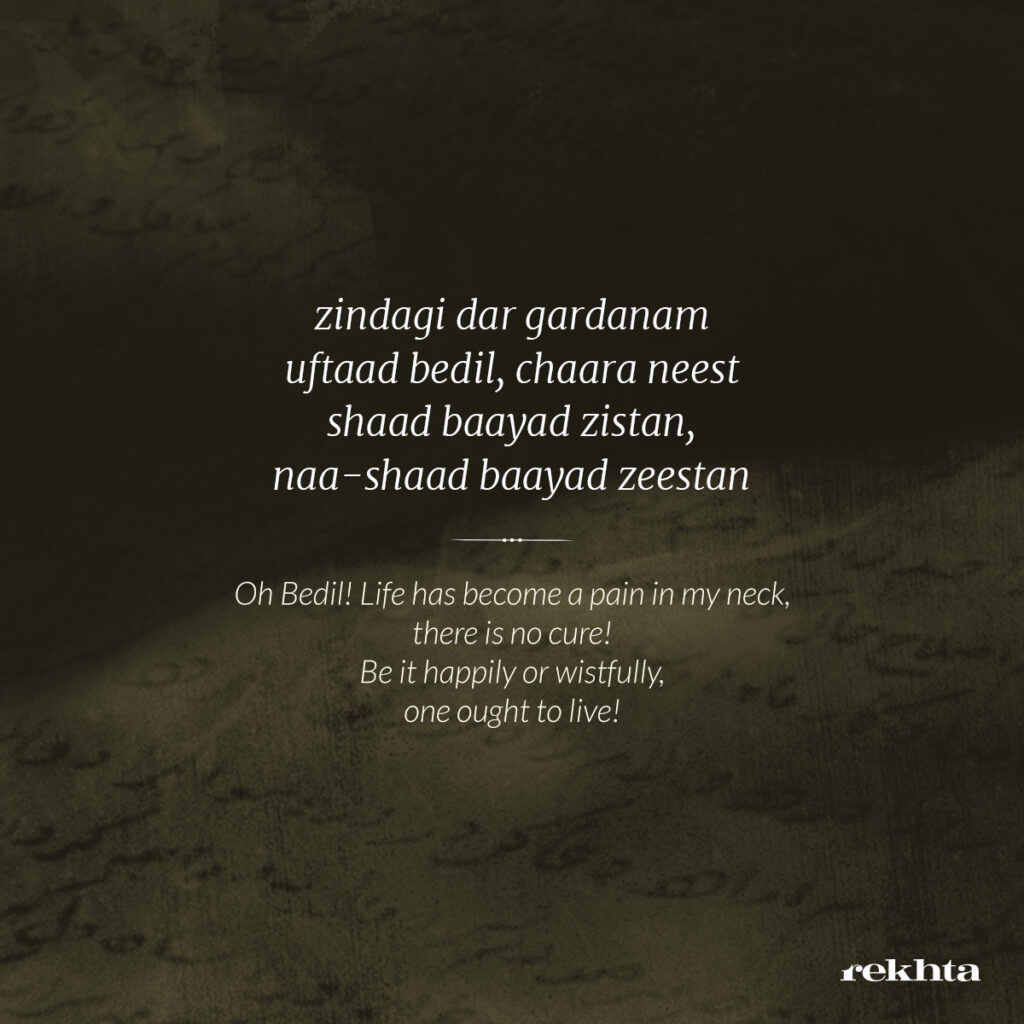
See how closely the three languages are knit together? These proverbs corroborate how language, speech and the common rhetoric evolves and how languages mingle with other languages to give breadth to human expression. We are sure some of the proverbs will leave you angusht ba dandaan gazida. Confused? It means to be astonished, and if you’re looking for a counterpart, here it is, daanton tale ungli dabaana. Here’s Sajida Zaidi’s ‘astonishing’ couplet:
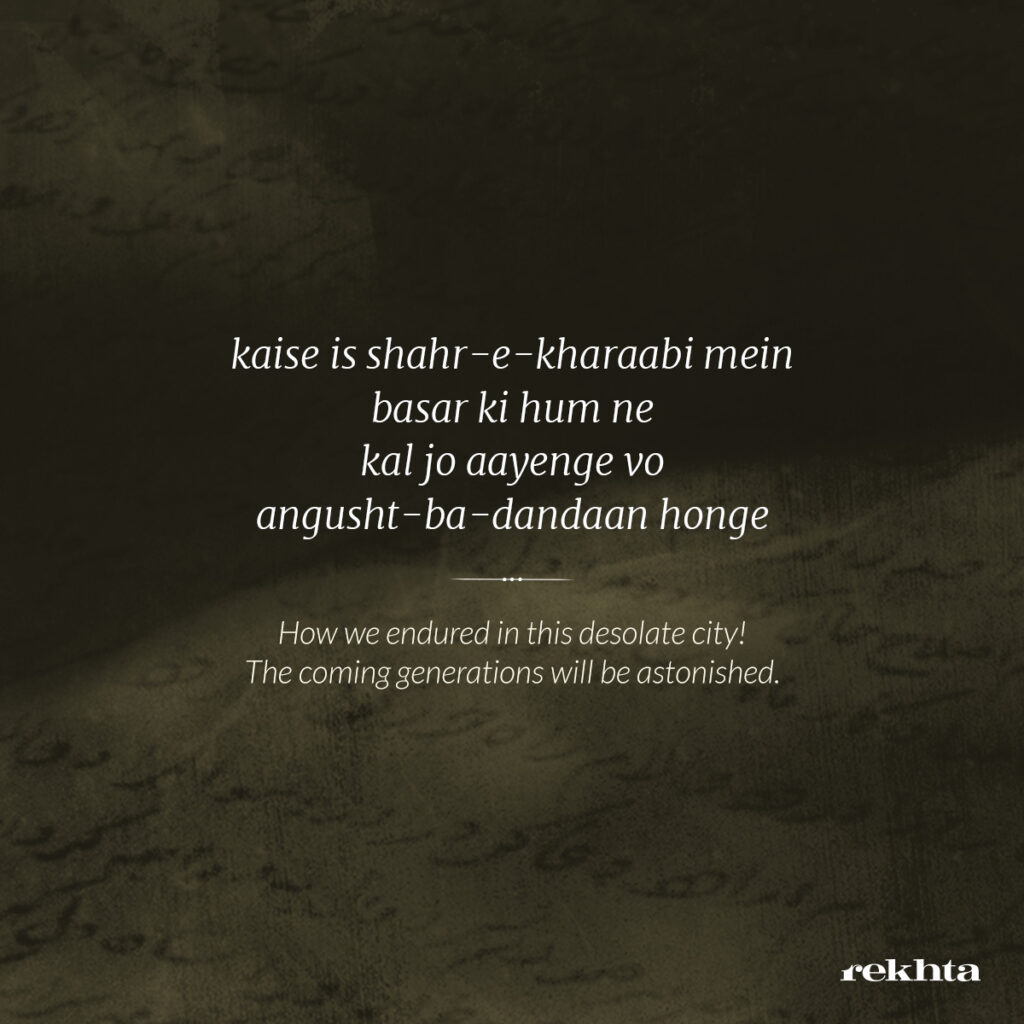
Lighting up the mood a bit, we hope you’re tuning to Rekhta Live every night, it’s truly one of the most unalike and singular endeavours bringing peace and solace to the thousands confined to their homes through poetry, music and literature, be sure to lend an ear to it.
Oh, and while we talking about ‘ears’, those who have experienced Rekhta Live would admit that it has spun the definition of one proverb on its head- deewaar gosh daarad, come on its an easy one… deewaaron ke bhi kaan hote hain! Yes, walls have ears and they too can rejoice, given that they are not buland shunida, any guesses? uunchaa sunne waale! Just be a little aware of those on the other side of the wall, for they are often gosh pur karda- ok, this one is a little hard- kaan bharne waale! And if you are saying something to yourself, they’ll be instantly gosh afraakhta, it means to turn and listen gingerly, perhaps you can relate it with our own proverb, kaan khade hona. Look at Raja Mehdi Ali Khan’s humorous use of this dictum:
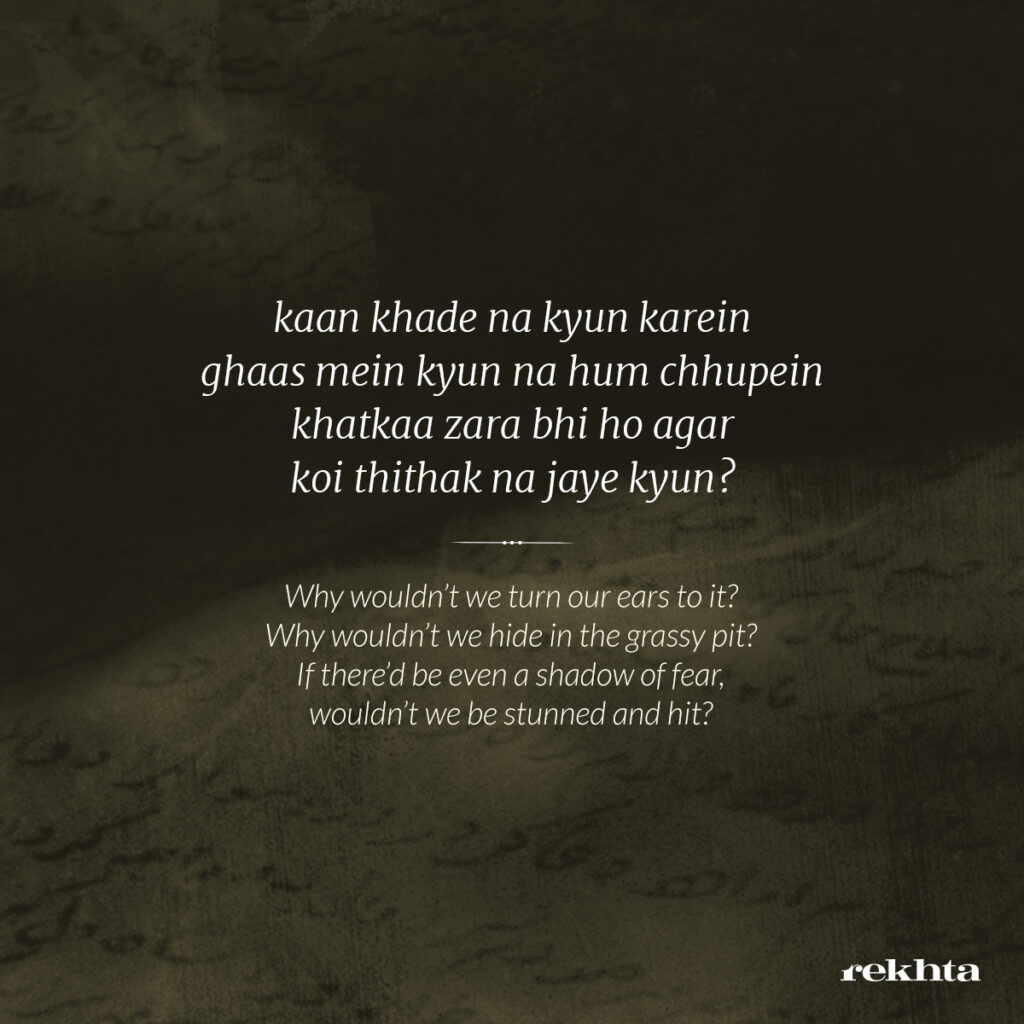
What do you say, isn’t there a startling connection between our languages? Take it as a word that there well might be numerous other examples of such proverbs. But for now, it seems, we’ve learnt quite a lot of them. Try to drink in these proverbs but don’t become a tutii-e-sahib-salamat-go, looks difficult? It’s not, it means a rattu tota, one who heedlessly by-hearts a phrase.
Surely, you’d be pleased to get hold of such a unique blog- wait, get hold of? Yes, another one, ba-dast awardan, or as we say, haath aana. In any case, it’s better not to be dast-ba-dast nishasta, sitting idly, or as we are currently collectively swearing at the lockdown, haath par haath dhare baithe hain. This proverb calls to mind one of Momin’s classic tongue-in-cheek verses:
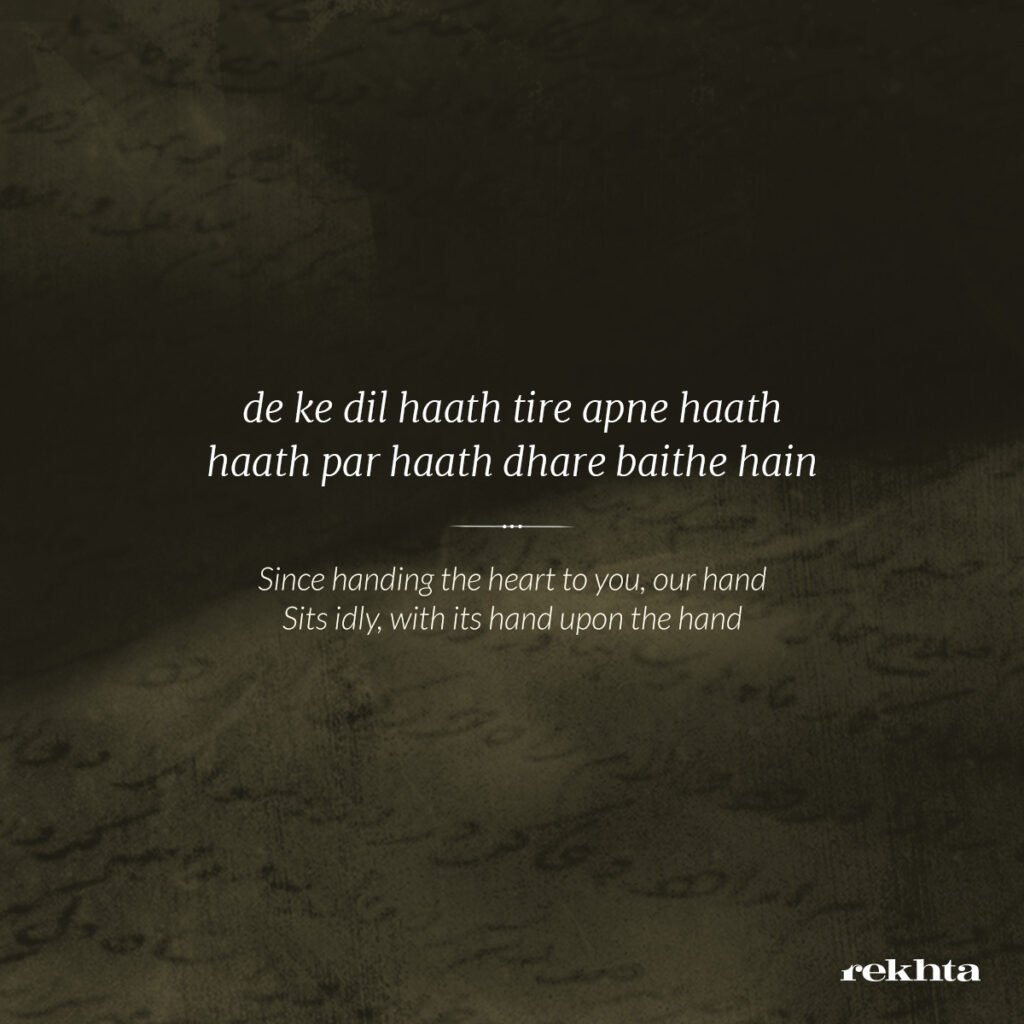
We hope the blog was both entertaining and informative, you’ve now attained such knowledge about these languages that perhaps some of us would say, aapki to paanchon ungliyaan ghee mein hain! And yes, you’re guessing it right, we do have a Farsi twin to it- naan dar roghan uftadeed, literally, your bread is soaked in the Ghee, said for someone who has done quite well for himself, just like you who has made it to the end of this lengthy blog. Since you know a lot more now than you did before, we’ll leave you with a couple of shared phrases- mubarak-baad and chashm-e-baddoor.
There is one last thing that you can perhaps reflect upon later, Kya main Farsi bol raha hun?
NEWSLETTER
Enter your email address to follow this blog and receive notification of new posts.




